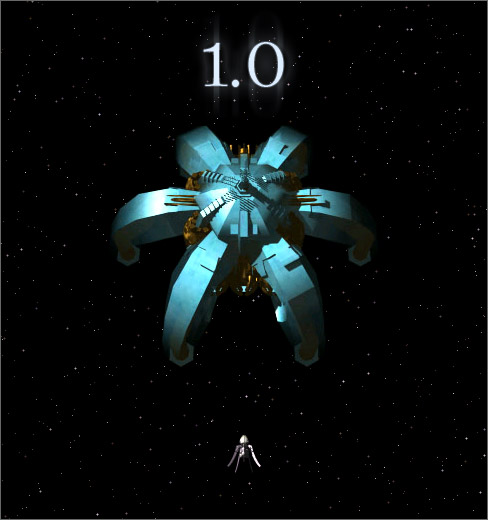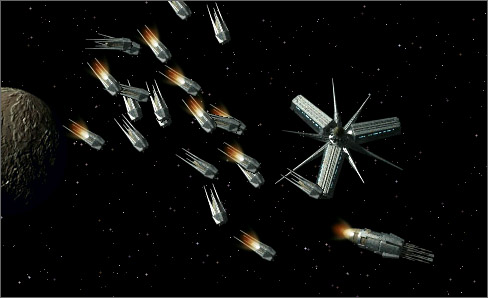Transcendence 1.0

After years of work, dozens of intermediate releases, and thousands of suggestions and ideas from the loyal community, Transcendence 1.0 is finally done! To everyone who has ever played the game, and especially to those who have patiently stuck with me for release after release, I offer my most heartfelt thanks. This truly could not have happened without you.
When I released Transcendence version 0.7 back in November 2003 I was confident that I could finish a 1.0 release in a couple of years at most. Even as recently as late 2008, I thought 1.0 would appear in early 2009. While I clearly haven't learned much about predicting my own development cycle, I have learned quite a lot in creating this game. In honor of this release I'd love to share some of what I've learned in hopes that it might be of use to some of you who are engaged in your own game projects.
My favorite games combine three very important ingredients: an intriguing setting, a meaningful story, and interesting game mechanics. Think of a game like Ken Levine's Bioshock: its setting is amazing—who wouldn't want to explore the world of Rapture. Just as compelling, the story involving Ryan, Atlas, and the Little Sisters pulls the player into the narrative and gives him or her a reason to play. Finally, the innovative mechanics of the game—the hacking mini-game, using objects to set traps, the interaction with the environment—all create interesting challenges for the player to confront and master. Bioshock is great because all three elements are strong and reinforce each other.
Novice game designers almost always focus on the setting at the expense of game mechanics. When I designed Chron X, for example, my first spec was a document that described the setting (a distopian cyberpunk milieu) rather than the game mechanics. It was only later, during the development of the game, that I began to mash-up the mechanics of Magic: The Gathering and Blizzard's Warcraft. My first take on Transcendence was somewhat similar: I spent a lot of time defining sovereigns and technologies and almost no time thinking about how people would actually play the game.
Today I try to focus on the game mechanics as much as everything else. For example, in designing the new Battle Arena, I added the concept of audience reaction. If you want to succeed as a gladiator, you must make sure the audience loves to watch you, and one thing the audience loves is a come-from-behind victory. This means that the player is encouraged to take damage—the more wounded the player is, the more the audience will appreciate a victory.
Creating a meaningful story in Transcendence has been just as challenging. How can I create an interesting story if the game is designed to be replayable and randomly generated? What I've tried to do, not always successfully, is to tell the story in pieces. In one playthrough, a player might learn about Admiral Decker and the Commonwealth Fleet; in another, they might learn about the CSC Antarctica and the Ares Orthodoxy. Ideally, over time and multiple sessions, players should get an idea of what's going on.
Another technique that I'm starting to use is to include microstories that reveal more about the main plot. For example, the story of Volkov and his wife Helena reveals (or at least confirms) that many others (besides the player) are called by Domina to undertake a quest, and that some, perhaps most, do not survive.
Of course, my ultimate goal is for stories to emerge from the interaction between player and game world rather than from scripted events. For example, this new version has a much more dynamic universe: freighters fly between stations on their own missions; enemies send out patrols; and battles begin even without player involvement. Not only does this make the universe feel alive, but it also increases the chance for emergent events, such as running across a friendly convoy under attack by enemies.
I can't claim to have mastered these three game design ingredients, but designing Transcendence over these last six years has helped me to practice the art of all three.
Transcendence 1.0 is done, but Transcendence the game will continue to improve. Versions 1.1 and 2.0 are still to come, and a future post will discuss some of my plans for their design. I wouldn't dare venture a guess on when they might arrive.

See Also
If you have comments, feedback, or ideas, please join the Official Transcendence Forums or send me an email at: [email protected]


